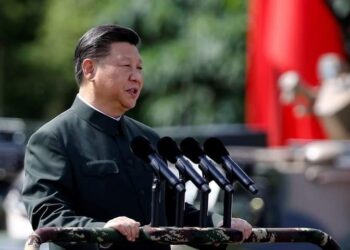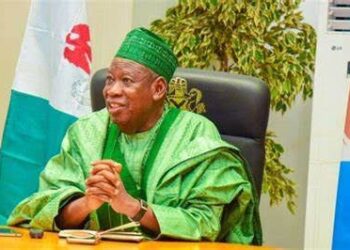The importance of quality veterinary services and indigenous knowledge have been stressed to enhance agricultural production in the nation. The President, Veterinary Council of Nigeria (VCN), an Assistant Inspector-General of Police, Dr. Aishatu Baju, has reaffirmed how this is possible through the council’s continued support and collaboration with all veterinarians and stakeholders in providing the enabling environment towards achieving and maintaining qualitative veterinary services to the people.
Dr. Baju noted that the VCN was taking major steps to improve the quality of veterinarians and veterinary paraprofessionals to align with the national reform agenda of President Bola Tinubu. He said these include having the veterinary seal, the veterinary app, digitised veterinary practice license and geo-mapping of veterinary practice premises aimed at addressing the menace of quackery in the profession and enhancing efficiency of veterinarians and veterinary paraprofessionals, even as she urged Nigerians to take full advantage of these innovations and work with the council to eradicate the scourge of quackery in Nigeria.
She added that these would strengthen animal disease control, improve food safety and hygiene in abattoirs and wholesomeness of foods of animal origin hence ensuring a healthy people and a healthy nation. The AIG maintained that the council was working on policies geared towards providing employment and other necessities for young veterinarians, either in public or private sectors of the economy. Meanwhile, VCN Acting Registrar, Dr. Oladotun Fadipe, during the oath-taking, disclosed that veterinary medicine “is a noble profession that doesn’t work with assumption, but facts and reality”.
Also, the President, Nigerian Veterinary Medical Association, Dr. Moses Arokoyo, advised the inductees to discover their differences in order to go far in life and acquire more skills to do things differently from the usual ways for them to carved a niche for themselves. In the same vein, the guest speaker, Dr. Samuel Adeyemi, the Chief Executive Officer, Soptimal Ventures Nigeria Limited, charged the new professionals to identify the direction they want to go in life and get themselves a mentor in order to fly high while stressing that they should endeavour to improve themselves by doing something extra to be distinguished.
Similarly, a don of Environmental and Analytical Chemistry, Prof. Olukayode Bamgbose, has stressed the need for increased public awareness and education to end the alleged indiscriminate, ugly and unwarranted human footprints on the environment. He made the call while delivering the inaugural lecture titled: “In the Footprints of the Environment: Every Contact Leaves a Trace on Our Common Future”. The environmental detective advocated an increased government funding of universities in the country, noting that the government must be alive to its responsibilities in sustaining research in the identification of man’s footprints on the environment. He emphasised that the government must, as a matter of necessity, devise means to improve the economy of the country with the determination to pass down dividends of democracy to the citizens, while affirming that ignorance could be surmounted through good education.
Prof. Bamgbose attributed the heightened rise of deforestation on the high cost of fuel, which has had spiral effect on the cost of living, saying what could assist the green environment was almost disappearing. The professor, however, recommended the utilisation of the six geopolitical zones as “laboratory complexes, equipped with state-of-the-art facilities that universities can draw on, with the aim of achieving its mandate of tracking man’s footprints on the environment”. Meanwhile, experts have stressed that Indigenous Knowledge System is part of the culture of the people, saying each group has its own indigenous knowledge, which is peculiar to their culture by making it unique.
According to Prof. Kolawole Adebayo, Indigenous Knowledge System is native to any group of people, which started and evolved with them, and also encompassed their philosophy, thoughts, actions and everything that defines a people. He emphasised that the language, proverb and stories are all part of the system, saying unfortunately, many African nations have lost touch between the foundation of their knowledge system and their current system of operation by their contacts with the Europeans. In the same vein, an expert in the study of indigenous knowledge and a renowned forest resources and medical plant expert, Prof. Samuel Oluwalana, said the study of indigenous knowledge system is target-oriented, and not just for everybody.
Meanwhile, the Director, Institute of Food Security, Environmental Resources and Agricultural Research (IFSERAR) and organiser, Indigenous knowledge programme, Prof. Alaba Jolaoso, revealed that there had been research going on underground, but the institute was planning to have a one-day programme, where they would invite people that had not standardised the use of indigenous knowledge and collaborate with them to find solutions to problem they have in the application of indigenous knowledge system in their diverse fields, hence adding to the discourse on the relevance of high quality veterinary services, indigenous knowledge a safe environment is key to the attainment of food security in the country by ensuring that all the salient points are identified and well implemented.
On qualitative vet services, indigenous knowledge




